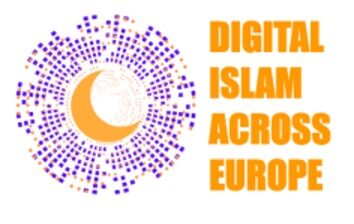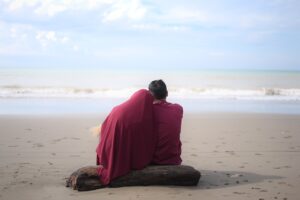Gary R Bunt (UK Team and Website data analysis)
Anna Grasso (UK Team and Website data analysis)
This archive is part of the Digital Islam Across Europe project’s collection. One of the DigitIslam project outputs focuses on website data and collection analysis. The objective is to identify, catalogue and analyse Muslim organisations’ and actors’ websites (Online Islamic Environments or OIEs) from these different countries.1
The topic of Gender is a primary focus of the DigitIslam project. It is one of the transnational strands which will be taken into consideration in the analysis and comparison of our different methodological approaches (qualitative, quantitative, and web analysis).
This collection features websites of Islamic organisations and online platforms centred around Gender and Inclusion in the United Kingdom. As these two words can have multiple meanings, we opted to categorise websites using both a theory-driven and field-driven approach.
Regarding the issue of Gender, we chose to concentrate on topics more closely associated with femininity, such as women-centred organizations for networking and female empowerment, those addressing motherhood, as well as those dedicated to relationships, marriage, family, and parenting. Additionally, we focused on masculinity-related topics, including websites linking religion to combat, sports, male self-improvement, and the acquisition of wealth.
An example of a website focused on femininity is the Community Interest Company named “Together We Thrive,” which aims to unite Muslim women and motivate them to leverage their knowledge to benefit both themselves and those in their communities.
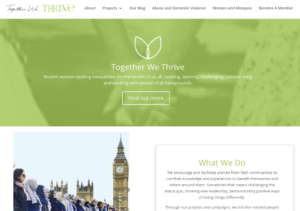
Together We Thrive website
However, we also made the decision to include websites that cater to both men and women, such as platforms centered around family and relationships. For example, “The Muslim Family Foundation” platform offers marriage courses as well as courses on conflict resolution, finance, and intimacy.
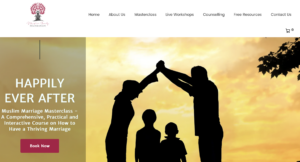
The Muslim Family Foundation website
Topics related to masculinity have also been approached in a similar manner. For example, the “Armed Forces Muslim Association” includes Muslim women soldiers. In fact, on the main page of their website, we can observe a Muslim woman soldier praying alongside her colleagues.
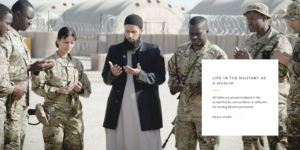
Armed Forces Muslim Association website
However, other websites solely cater to men. An example of this is the “The Brothers Club” website, which offers a learning platform for men on self-improvement and financial success.
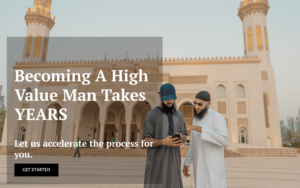
The Brothers Club website
These organisations and platforms are affiliated with various branches of Islam (Sunni, Shia, as well as Ahmadiyya). For example, the Ahmadiyya community has three different websites dedicated to women. One example is “Voice of British Muslim Women,” a blog where women contribute articles on various general topics such as current events, as well as women-focused subjects like the hijab.
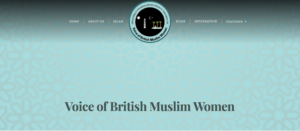
Voice of British Muslim Women website
The term inclusion can also encompass various interpretations. On one hand, we encounter organisations that use this term to signify the acceptance of all types of marginalised Muslims, including sexual minorities such as the Muslim LGBTQ+ community. A prominent example of such an organisation is the “Inclusive Mosque Initiative.”
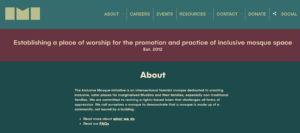
Inclusive Mosque Initiative website
However, on the other hand, it can also signify local collaboration initiatives involving various social and religious movements. The “Inclusive Muslim Action Network” could be seen as fitting such a description. Based in Sandwell, UK, it aims to foster dialogue among Muslims and non-Muslims within the local community.
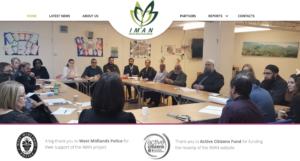
Inclusive Muslim Action Network website
The websites in this collection serve various functions. They include informational websites, blogs, webpages providing different types of resources (videos, articles, books, podcasts), as well as online teaching platforms.
This archive consists of an initial capture. We will be updating this list in due course. We believe this data can become a useful tool for researchers and the general public who have an interest in digital Islam across Europe as well as those who are mostly focused on the study of Islam or comparative religion within the British or Western context. Moreover, the analysis of these sites will be part of a wider project output through presentations and publications.
- For more information on this: https://blogs.ed.ac.uk/digitalislameurope/research-findings/archiving/ back
Image by rahmadani578 from Pixabay
